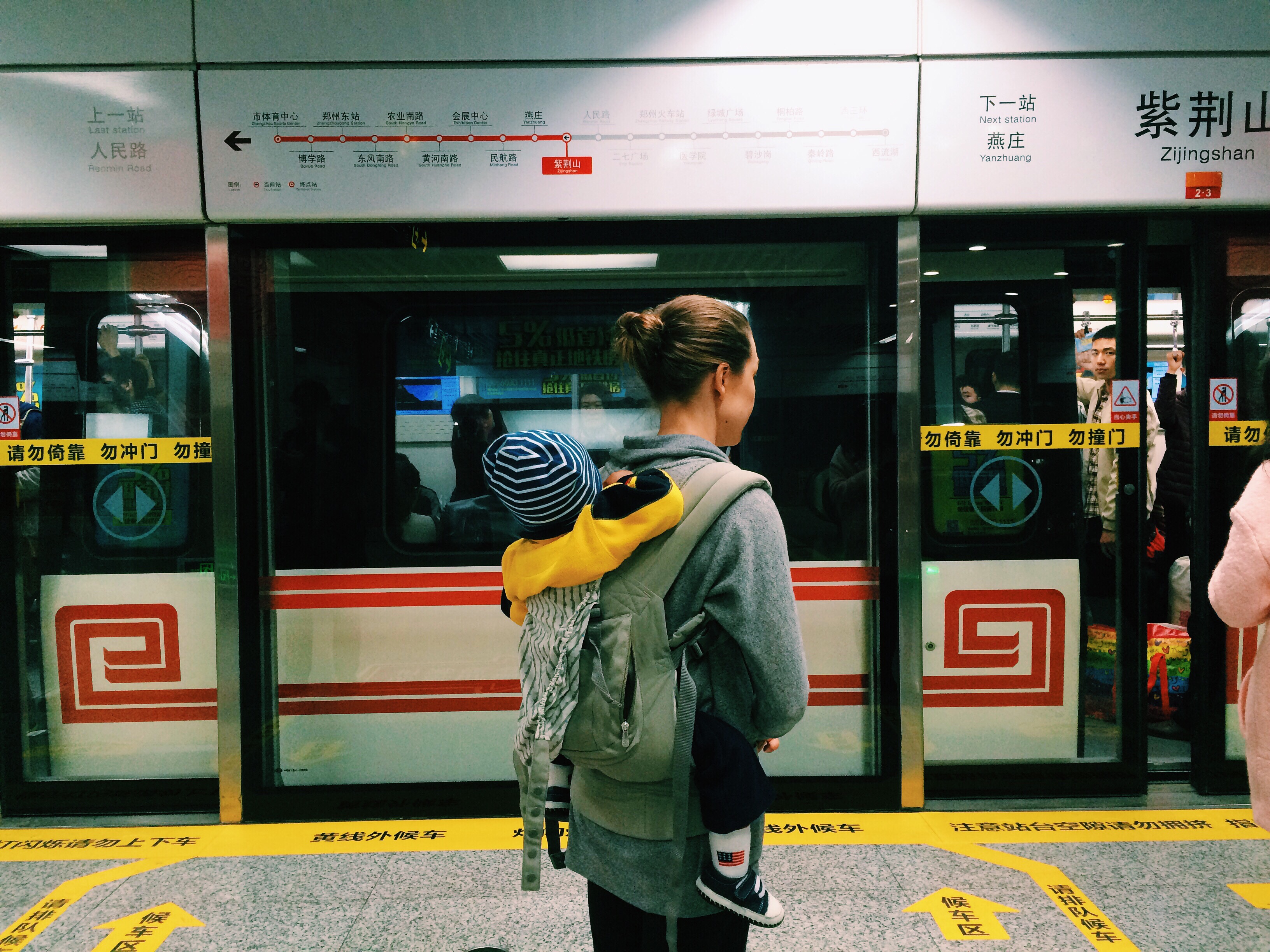Here’s a few tips I put together based on my experiences in China earlier this year – hopefully really useful if you’re visiting any time soon!
Also, absolutely loved this Lonely Planet China book, really useful and practical tips and has a short overview of a lot of top places and it’s all in colour.
Technology
With such a huge growth in technology in China over the past few years, it’s no wonder that the whole population has grown to rely on it, possible more than us in the west. In public spaces you’ll find wifi and phones chargers, so people never lose touch with their virtual worlds…

WeChat is life
It’s like Whatsapp, Apple Pay, Facebook and much more, all in one application (or A-P-P, as the Chinese say). What’s interesting about China is that when it comes to technology they’ve actually skipped a lot of technology developments that we’ve had in the West, meaning that they’re ahead of the game in many ways. Cash is becoming uncommon for the Chinese, with most places allowing you to use WeChat or AliPay to pay, and according to my good friend Cherry this has grown massively in the past year alone.
QR Codes are actually popular
I’ve been battling with people for years in the UK, those who want to put QR codes on posters and other marketing materials; “no-one will scan it”.
Meanwhile in China, everyone is scanning bar codes everywhere. The vast use of WeChat to scan them for certain functionalities has made the QR very very popular here.
I take it all back.
Uber doesn’t exist here
Following an 18-month – ish battle with Uber, local car service organisation Didi, (who actually has more cars in China than Uber does globally), won. If you’re visiting China you can download Didi and use it in the exact same way, charging things straight to an international credit card. Wired featured an interview with the Didi President recently, which is really interesting, and handily came out just before I travelled.
Get yourself a local SIM card
With so many apps that will help you when you’re out and about (Apple maps, Didi, WeChat just to name a few essentials), I would recommend getting a local SIM card if possible. It’ll make your life easier NOT to rely on wifi – trust me. Make sure your phone is unlocked before you arrive.
Be VPN savvy
Many of our usual news sources are blocked in China, but with a VPN you can get access to all Google services, Twitter, Facebook, Instagram and Whatsapp. It does however slow down any internet access you have, so only use when accessing those apps / sites. I bought Express VPN, about $10 per month and can be installed on multiple devices.
Bookmark Bing
You’ll realise how many times you Google things, once you can’t get on it! However, there are other search engines out there (crazy to think, I know), and in fact Bing.com operates a pretty comprehensive search service and translation function. Make it your default search tool whilst you’re in China for easy searching.
Loos

Squatting
Yeah ladies, work those squats into your pre-China gym routine. The majority of the toilets are ground level squatters; which are technically more hygienic if you think about it. Bring your own loo roll and hand sanitiser, plus be prepared for doors that don’t lock, I sneaked an accidental peek of a few other pee-ers whilst I was there.
Amazing public loos
In all of the cities I visited, there were a lot of public toilets, and you might imagine they’re really horrible, but they’re actually nice. The UK should take a leaf out of China’s book here, because we have the worst public loos, ever.
Transport

Carrying your passport is essential
If you want to take a train for example you’ll need to have a copy of your passport, as everyone is required to have their ID with them when they travel, even nationally. It’s probably safer to have your passport with you at all times and I did read somewhere it’s actually against the law for a foreigner not to carry it at all times. Have both to be safe.
Taking trains is lovely
With modern high-speed bullet trains a key transport mode to get around the country, you’ll be between cities in no time. Book your tickets in advance (i.e. latest the day before) to avoid disappointment.
Subways are foreigner friendly
Every single one I’ve used has an English option to help you navigate.
Food

Food food food
Food is pretty much everything here. Be prepared for lazy susans in restaurants, everyone sharing from the same dishes and plenty of different options (if you’ve got Chinese hosts). If no hosts, try all sorts of things in your group to get the real authentic Chinese meal experience.
It’s hard to read menus
Where I stayed, outside of the main, big, cities, there aren’t many people who speak English, and there are limited places that have English writing on menus from which to choose. Sometimes there are photos which are helpful, Google translate can work with the live camera translate function on a written menu, but mostly not.
You’ll get the best food at these places though, so it’s worth the risk of just pointing and ordering something completely random.
Alternatively, take a photo of the photo menu (if it’s on a wall) and then point at what you want.
Other

Use speech function on Google Translate
You’ll need to have it downloaded though, or be on the internet otherwise, with a VPN. This is especially handy for communicating in taxis or laundrettes.
Addresses in Chinese
If you’re going to flag a taxi somewhere I recommend you have your destination written in Chinese characters. Hotels / hostels will help you write this out, as most taxi drivers won’t understand addresses written in pin yin, and this is why Didi is so handy.
LEDs everywhere
Everything lights up, flashes, and is coloured. It’s like a mecca for glowing things (my hotel was flashing as I started to type out this post back in March).
There’s plenty of drinking water
Mostly hot boiling water handy for tea leaves or pot noodles, but often cold water for drinking too – carry a water bottle.
Two languages
Most people speak Mandarin, but head south to Hong Kong and everyone speaks Cantonese (traditional Chinese). Some of the characters look similar (especially to someone who doesn’t understand), but in actual fact are very different to speak. Check online when travelling to know which cities / areas use which version of the language.
Other handy links I found online:
By Sarah Warsaw, by day advertising at IBM UK and by night blogging on Warsaw's World



